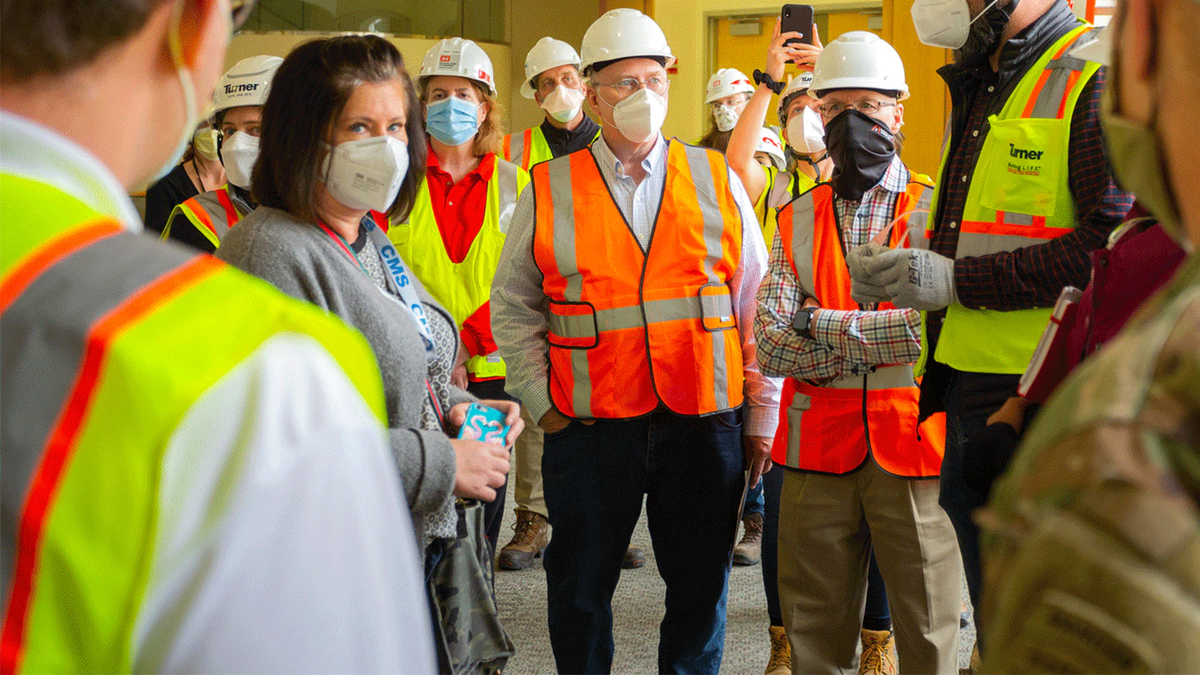Permit Expediting During COVID-19: Problems and Solutions

With COVID-19, 2020 has been a year of change for everyone. At the start of the year, the norm was sitting in an office every day, going out to eat regularly, and having the opportunity to see your loved ones in person. Now we have all become accustomed to a much more solitary way of life. Working from home, holidays spent on Skype, and exclusively takeout. This year, more than any other before it has shown the incredible feats humanity can undergo to survive and thrive.
For Permit Advisors, we have had to adapt to a completely different landscape for permit expediting. Our Project Managers excel in our ability to cut wait times via our personal relationships with various jurisdictions. During this pandemic, we have had to utilize our problem-solving skills to tackle permit expediting in an unprecedented way.
Some items operate similar to pre-COVID, such as the initial submittal of medium to large projects. This was the task of submitting into the queue, paying fees, and awaiting the first round of comments. In this small step of the process, the system has become easier. We simply have to drop off the plans and then receive an online link where we can pay fees and await notification when corrections are ready. Before COVID, we had to wait long lines at a cashier desk that could slow down the process heavily.
Unfortunately, that is the one step that has become smoother during the pandemic. Additional requirements have been added to every other stage causing more layers to pass through and ultimately more time to achieve results. Luckily, our Project Managers are seasoned veterans to permit expediting and have acquired solutions to each new problem COVID has caused.
As you know, each city jurisdiction has its own guidelines to acquire a permit. Below are some examples of additional measures the City of Los Angeles has introduced to receive a permit:
- All plans that are dropped off must be quarantined. This means that city managers will receive plans later than anticipated. With careful planning and strategizing, we have incorporated this into our timelines to prevent any pushback on an expected start date.
- Most departments are telecommuting on some or all of their days, however, some functions can not be performed remotely. This means items such as processing approvals, releasing plans for pickup, amending corrections, etc. must now be performed only on the days that the reviewer is in their office. This means that intense scheduling must be done to prevent any additional weeks being added between steps.
- Also, there is no continuity across departments or within departments, and schedules are not public. Therefore, we are constantly trying to secure a response from reviewers to coordinate their availabilities, COVID restrictions for that department, all while lining it up with our staff availability.
- This means that on top of scheduling our specific staff regarding wait times, appointments with city agents, location of plans in the office, etc. We must also incorporate the in-office schedule of the entire jurisdiction staff.
To highlight how simple tasks have incurred substantial delays, we have asked one of our Project Managers to highlight recent examples:
- Small Scope of Works – Since everything is now drop-off “counter” reviews, a small scope of work (that would be a simple same-day review) now enters a weeks-long queue to hear back. What was once completed in just a few hours while conversing with a reviewer in real-time now is completed in one to two weeks (though varied).
- Jurisdictional Administrative Requirements – LADBS still handles hard copies of plans with wet stamps and physical perforations for almost all permits. They have not, however, established an internal routing system for plans to secure/gather the stamps from the separate departments requiring clearance before the plans get approved and permit issued.
- –This means that while some larger scope project submittals can be completed faster during COVID-19, that time gained is lost during the end because each department (Disabled Access, Green Building, LAFD, Planning, etc.) review the plans separately and without much coordination with other departments. In most cases, you have to run back plans that are ready to be approved through each requisite department to secure a “restamp” onto what will be the final sets of plans. Being that they all review separately, there is no way to ensure any stamp previously secured can be on the same set as a sheet stamped by another department, and waiting for each department review would be too time costly. This entire task used to cost only a few hours across a couple of days, but now it has turned into a four-six week process.
- –Luckily, due to our close relationships with jurisdictions, we have been able to leverage those ties to ask a reviewer to personally hand them off to another department. This saves us about two weeks of waiting if they were released and submitted.
- Resubmitting Responses to Corrections – There are now different requirements with gateways to resubmit to an alternative department. The main department requires an email from the reviewer “authorizing” the resubmittal of plans. The intake desk will not accept resubmittals to these departments without that authorization. This can pose a problem when there are reviewers who have hectic schedules and are not available to answer emails quickly. In addition to quarantines, inconsistent ETAs, etc. what was once a fixed scheduled appointment with a reviewer in one to three weeks from a request, now we often see it taking three to fix or even six weeks to get this interim step completed.
What has helped us tremendously during this entire transition is our relationships with city departments nationwide and our in-depth understanding of the system. Reviewers will respond to emails from those they recognize far quicker than to people they do not know. Additionally, when troubles keep popping up that prevent us from expediting a permit as efficiently as we’d like, we can utilize those ties to request tasks be done in a specific way to save time. Our understanding of permit expediting allows us to strategize a solution for every problem that comes our way.
A person or company unfamiliar with permit expediting will, without a doubt, find trouble receiving a permit at this time. Hiring a professional, one with nationwide experience can save you time and money on your next project. Permit Advisors has stood out during the pandemic, utilizing our proactive communication, consistent quality of service, and the acquired knowledge of achieving multiple successes.




